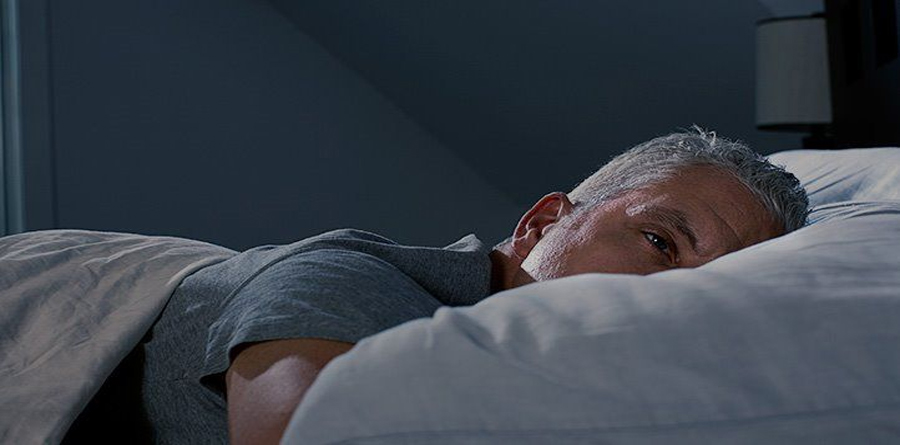Sleeplessness Causes, Effects, & Remedies
Insomnia is a common sleep disorder that can make it hard to fall asleep, hard to stay asleep, or cause you to wake up too early and not be able to get back to sleep. You may still feel tired when you wake up. Insomnia can sap not only your energy level and mood but also your health, work performance and quality of life. How much sleep is enough varies from person to person, but most adults need seven to eight hours a night. At some point, many adults experience short-term (acute) insomnia, which lasts for days or weeks. It’s usually the result of stress or a traumatic event. But some people have long-term (chronic) insomnia that lasts for a month or more. Insomnia may be the primary problem, or it may be associated with other medical conditions or medications.
Types of Insomnia
There are two types of insomnia: primary and secondary.
- Primary insomnia: This means your sleep problems aren’t linked to any other health condition or problem.
- Secondary insomnia: This means you have trouble sleeping because of a health condition (like asthma, depression, arthritis, cancer, or heartburn); pain; medication; or substance use (like alcohol).
You might also hear about:
- Sleep-onset insomnia: This means you have trouble getting to sleep.
- Sleep-maintenance insomnia: This happens when you have trouble staying asleep through the night or wake up too early.
- Mixed insomnia: With this type of insomnia, you have trouble both falling asleep and staying asleep through the night.
- Paradoxical insomnia: When you have paradoxical insomnia, you underestimate the time you’re asleep. It feels like you sleep a lot less than you really do.

Sleep disorders are very common. They affect up to 70 million Americans every year.Insomnia symptoms occur in approximately 33% to 50% of the adult population while Chronic Insomnia disorder that is associated with distress or impairment is estimated at 10% to 15%.
Most adults need around seven to nine hours of sleep per night but the amount of sleep needed to function at your best varies between individuals. The quality of your rest matters just as much as the quantity. Tossing and turning and repeatedly awakening is as bad for your health as being unable to fall asleep.
Causes of Sleeplessness
Many things can contribute to the development of insomnia including environmental, physiological and psychological factors, including:
- Life stressors including your job, relationships, financial difficulties and more.
- Unhealthy lifestyle and sleep habits.
- Anxiety disorders, depression and/or other mental health problems.
- Chronic diseases like cancer.
- Chronic pain due to arthritis, fibromyalgia or other conditions.
- Gastrointestinal disorders, such as heartburn.
- Hormone fluctuations due to menstruation, menopause, thyroid disease or other issues.
- Medications and other substances.
- Neurological disorders, such as Alzheimer’s disease or Parkinson’s disease.
- Other sleep disorders, such as sleep apnea and restless legs syndrome.
Insomnia occurs more often in women than in men. Pregnancy and hormonal shifts can disturb sleep. Other hormonal changes, such as premenstrual syndrome (PMS) or menopause, can also can affect sleep. Insomnia becomes more common over the age of 60. Older people may be less likely to sleep soundly because of bodily changes related to aging and because they may have medical conditions or take medications that disturb sleep.

Some other health conditions that can limit sleep include:
- restless legs syndrome
- an overactive thyroid
- sleep apnea
- gastrointestinal reflux disease, commonly called GERD
- chronic obstructive pulmonary disease, known as COPD
- chronic pain
How is insomnia diagnosed?
There is no specific test to diagnose insomnia. Your healthcare provider will perform a physical exam and ask questions to learn more about your sleep problems and symptoms. The key information for the diagnosis of insomnia is reviewing your sleep history with your doctor. Your provider will also review your medical history and medications you are taking to see if they may be affecting your ability to sleep. You may also:
- Get a blood test: Your doctor may want you do a blood test to rule out certain medical conditions such as thyroid problems or low iron levels that can negatively impact sleep.
- Keep a sleep diary: You may be asked to write down your sleep patterns for one to two weeks (bedtime, wake time, naps, caffeine use, etc.) This information can help your provider identify patterns or behaviors that interfere with rest.
- Complete a sleep study: Sleep studies (polysomnograms) are not necessary for diagnosing insomnia. If your doctor has concerns that your insomnia may be caused by sleep apnea or another sleep disorder, you may be referred. You may go to a sleep disorders center or do the study at home.
Home Remedies for Insomnia
Many people experience short-term insomnia. This common sleep disorder can make it difficult to fall asleep and stay asleep until it’s time to wake up. Keep reading to learn how you can take charge of your sleeping patterns through meditation, exercise, and other home remedies.
Meditation
Mindfulness meditation consists of slow, steady breathing while sitting quietly. You observe your breath, body, thoughts, feelings, and sensations as they rise and pass. Mindfulness meditation has numerous health benefits that go hand-in-hand with a healthy lifestyle promoting good sleep. It’s said to reduce stress, improve concentration, and boost immunity. Researchers in a 2011 studyTrusted Source found that meditation significantly improved insomnia and overall sleep patterns. Participants attended a weekly meditation class, a daylong retreat, and practiced at home over the course of a few months.
You can meditate as often as you like. If you don’t have time for a longer session, aim to do 15 minutes in the morning or evening. Consider joining a meditation group once a week to stay motivated. You may also choose to do an online guided meditation. Meditation is safe to practice, but it has the potential to bring up strong emotions. If you feel it is causing you further angst or turmoil, discontinue the practice.
Yoga
Yoga has been foundTrusted Source to have a positive effect on sleep quality. Yoga may also alleviate stress, improve physical functioning, and boost mental focus. Choose a style that focuses more on moving meditation or breath work as opposed to difficult physical movements. Slow, controlled movements allow you to stay present and focused. Yin and restorative yoga are great options.

Strive to do a few longer sessions each week, and at least 20 minutes of daily self-practice. Performing the postures before bed can help you to relax and unwind. If a pose doesn’t feel right for you, don’t force it. Forcing it may result in injury. It’s important to do what feels good for you and your body, and that varies from person to person.
Exercise
Exercise boosts overall health. It can enhance your mood, give you more energy, aid in weight loss, and promote better sleep. Participants in a 2015 studyTrusted Source exercised for at least 150 minutes per week for six months. During this time, researchers found that the participants experienced significantly fewer symptoms of insomnia. They also showed reduced symptoms of depression and anxiety.
 To receive these benefits, you should engage in moderate exercise for at least 20 minutes per day. You may add in some strength training or vigorous aerobic exercise a few times per week. Find the time of day that best suits your needs and that has the most positive effect on your sleep. Take into consideration the condition of your body and exercise accordingly. Physical injury is possible, but can usually be avoided if you practice with care.
To receive these benefits, you should engage in moderate exercise for at least 20 minutes per day. You may add in some strength training or vigorous aerobic exercise a few times per week. Find the time of day that best suits your needs and that has the most positive effect on your sleep. Take into consideration the condition of your body and exercise accordingly. Physical injury is possible, but can usually be avoided if you practice with care.
Magnesium
Magnesium is a naturally occurring mineral. It can help muscles relax and relieve stress. This is thought to encourage healthy sleep patterns. Participants in a 2012 studyTrusted Source took 500 milligrams (mg) of magnesium daily for 2 months. During this time, researchers found that participants experienced fewer symptoms of insomnia and improved sleep patterns. Men may take up to 400 mg daily, and women can take up to 300 mg daily. You may choose to divide your doses between the morning and evening or take your dose before bed.
You may also add 1 cup of magnesium flakes to your evening bath, allowing the magnesium to be absorbed through your skin. Side effects include stomach and intestinal issues. You may wish to start with a lower dose and gradually increase to see how your body reacts. Taking it with food may reduce any abdominal discomfort. Check with your doctor if you take any medications to determine potential interactions. You shouldn’t take magnesium supplements constantly. Take a break for a few days every two weeks. Don’t take more than the recommended dose found on the product.












Leave a Reply